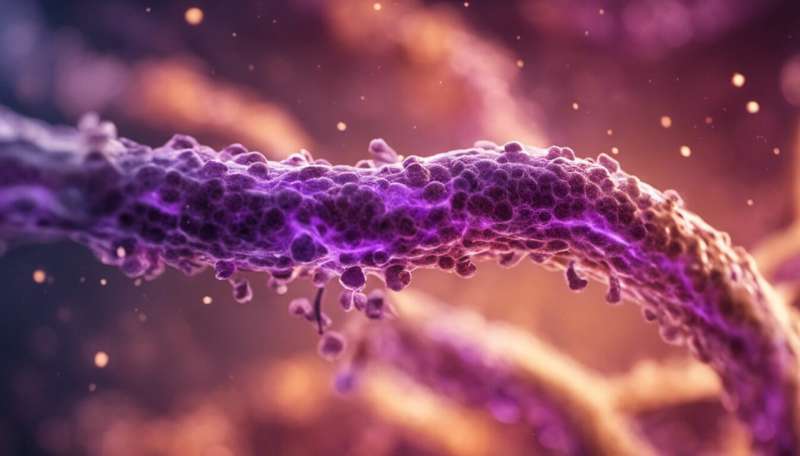This article has been reviewed according to Science X's editorial process and policies. Editors have highlighted the following attributes while ensuring the content's credibility:
fact-checked
peer-reviewed publication
trusted source
proofread
New target identified for pancreatic cancer treatment

Researchers have found a protein to block the growth of cancer stem-like cells as a possible treatment for pancreatic cancer.
Pancreatic cancer is one of the most lethal cancers in humans. Symptoms rarely appear early so it is often only diagnosed at an advanced stage, meaning prognosis and survival rates are poor. This, combined with lifestyle factors, means it is set to overtake colorectal, breast and prostate cancer and become the second leading cause of worldwide cancer-related deaths by 2030.
The dismal prognosis of pancreatic cancer is linked to the presence of a cell population called cancer stem-like cells (CSCs). These have been shown to increase resistance to chemotherapy, so annihilating CSCs has emerged as an essential aim of pancreatic cancer treatment. But the underlying processes driving CSCs are insufficiently understood.
Led by Siim Pauklin, CRUK Career Development Fellow at NDORMS, the team hypothesized that epigenic proteins are essential to maintain the resistive properties of CSCs. They started to look for targets and identified the protein BRD9 as a regulator of CSC behavior making it an attractive therapeutic target for specifically eliminating CSCs in pancreatic cancer.
"We started looking for potential targets that regulate stem cell-like characteristics of CSCs," said Siim. "Through a screening process we identified the protein BRD9 and discovered that inhibition of this protein significantly reduced CSCs self-renewal, invasiveness, and resistance to chemotherapy. This discovery could open up new opportunities for the treatment of pancreatic cancer. By targeting BRD9 we can improve drug penetration and eliminate CSCs thus improving the outcome measures for patients.
Published in Gastroenterology, this study has discovered a potential new target for treating pancreatic cancer. Siim explained, "By inhibiting the protein BRD9, we were able to block the growth and invasiveness of cancer stem cells, as well as improve their sensitivity to chemotherapy. The implication is that we can target the bulk cancer cell population but also CSCs, which has not been possible before.
"This finding helps to develop strategies for eliminating CSCs in pancreatic cancer patients by combining previously known chemotherapy regiments with our novel therapeutic target, thus making the treatments more effective and increase the survival of pancreatic cancer patients."
More information: Yuliang Feng et al, BRD9-SMAD2/3 orchestrates stemness and tumorigenesis in pancreatic ductal adenocarcinoma, Gastroenterology (2023). DOI: 10.1053/j.gastro.2023.09.021




















